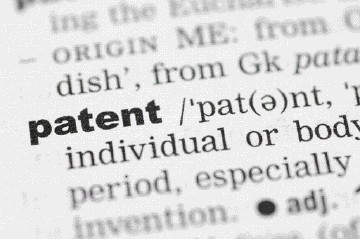
Of important significance to the oil and gas industry, the Government is due to introduce a “Patent Box” regime to encourage companies with high-tech assets to locate their base in the UK.
Including Energy readers attending the 2012 Offshore Technology Conference in Houston, you may want to consider how this proposed patent box regime can offer your company ways of gaining more value from its patent assets.
The patent box regime is relevant to companies earning profits from UK or European patents, provided they originate or develop the technology. As oil and gas companies will undoubtedly be utilising a portfolio of patent assets, a detailed assessment of how they can sensibly structure their business to make these assets deliver more financial value will be needed so they can fully take advantage of the savings available from April 1, 2013.
The regime is elective and will allow companies to apply an effective 10% Corporation Tax rate to profits attributed to patents with effect from April 2013.
The relief will be phased-in over a five-year period, with 60% of the relief available in 2013/2014 rising by 10% each year until the full relief is available from April 2017, allowing the growth of tax benefits to correspond with the patent profits accrued over time.
The regime will allow oil and gas companies to apply the reduced tax rate to profits from sales of patents or products which contain patented technology, royalties from the grant of exclusive licenses and compensation gained from disputes over patents.
Only one patent needs to be part of a product in order to apply the tax saving to the whole of the income from that product.
Crucially, tax legislation already protects the UK Government’s Corporation Tax take from UK oil and gas extraction operations, with extraction activities and the acquisition, use and exploitation of oil and gas rights being treated and taxed distinctly (and at a significantly higher effective rate) from all other activities.
The Government is keen not to allow patents associated with such activities or rights from benefiting from tax relief, meaning that profit from such activities/rights will not qualify for the patent box.
However, certain related profits may still benefit, for example if a subsidiary which owns rights to software for monitoring drill pressure, or software used to find oil reservoirs, then licensed the rights to a drilling subsidiary. Thus there is still scope for E&P companies to benefit.
To maximise the benefit, inter-company royalty arrangements may therefore need to be established for the reduced tax rate to be applied to the royalties earned for licensing patents.
The regime requires that the technical development of a patent must be attributable to the owner or another group company, effectively excluding companies that purely license patents.
The development requirement may be met, for example, by acquiring patents and then participating in their development.
In relation to group companies, the development work can be done by a separate group company as long as the company claiming the reduced tax rate manages the patent portfolio.
Oil and gas companies will want to assess, in the context of their multinational company structures, whether a subsidiary should manage the portfolio or a separate patent holding company arrangement should be established.
As oil and gas companies and drilling and service companies will undoubtedly have a variety of qualifying patent box income and non-qualifying income, they may also wish to make a “streaming election”, whereby income and expenditure of a trade can be split, particularly useful where profit margins vary substantially in different areas of the business.
Streaming will be mandatory in certain circumstances and any voluntary election should be approached with caution as the choice cannot be altered annually.
Technical consultation on the regime finished in February, and the revised version of the Finance Bill 2012 was published at the end of March.
With only a year to go until the tax benefits are available to companies, the time is now right to audit their patents and to consider what alternative structures will need to be put into place to take full advantage of the patent box.
Penelope Warne is head of energy at international law firm CMS Cameron McKenna
Recommended for you
